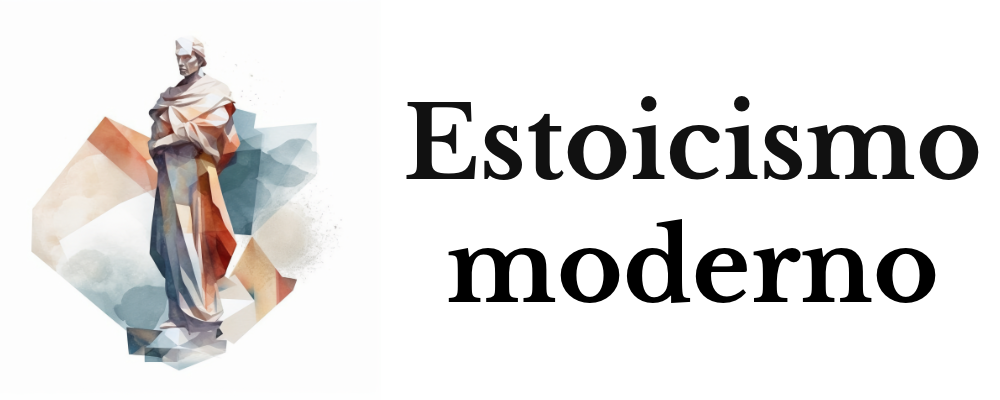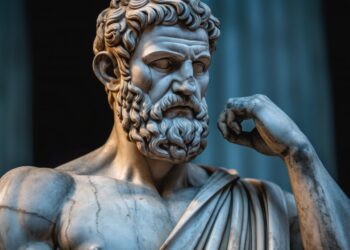Stoic Reflections: The Stoic’s Approach to Stress and Anxiety – Strengthening the Spirit in the Face of Adversity
In the relentless boil of contemporary life, where stress and anxiety frequently weave an invisible web constricting our hearts and minds, one might wonder: How would the Stoics, those venerable philosophers of antiquity, confront the internal storms of our times? To answer this, I invite you to immerse yourself in the serenity of their words and discover how their teachings still resonate with equanimity and relevance.
The Nature of Stress and Anxiety
Consider, kind reader, that stress and anxiety are as ancient as humankind itself. They are not modern inventions, though their guise and causes have shifted over the centuries. Marcus Aurelius, a Roman emperor and devoted Stoic, wrote in his Meditations:
> “Our discomfort comes from our opinions about things, not the things themselves.”
Is it not the case, then, that our inner turmoil is nourished by the perceptions we hold about events, rather than the events themselves? Herein lies the first Stoic key: the discernment between objective reality and our subjective interpretations.
The Power over Impressions
Epictetus, whose words endure thanks to his disciple Arrian, urges us to examine our responsibility:
> “It is not events that disturb people, but their judgements concerning them.”
If we regard each anxious thought as a preliminary impression, not yet set in the fertile ground of our mind, could we choose not to water it with our attention and concern?
Exercise 1: Challenge your impressions. When the next wave of stress rises, pause for a moment. Ask yourself: “Is this impression an objective reality or a shadow distorted by my mind?”
The Appropriate Action and Apathy
At the heart of Stoicism beats the differentiation between what depends on us and what is beyond our control. Epictetus clarifies:
> “In our own hands we have the power over our opinions, impulses, desires, and aversions. In short, all that is our own.”
So, if anxiety threatens to knot your spirit, delve into your repertoire of actions. What can you genuinely change? And what lies beyond your control, demanding to be released into the unalterable flow of the cosmos?
Exercise 2: Divide and conquer. Draw up two columns: in one, list what depends on you; in the other, what does not. Focus your energy on the first and learn to release the second.
The Undefeated Present
Stress and anxiety often arise from our tendency to wander between the realm of past memories and potential futures. Marcus Aurelius reminds us:
> “Concentrate on the present. You can control the present. Forget the rest.”
In the present moment, where your breath flows and your heart beats, lies your true power. What happens if you anchor yourself firmly in the now, shedding the chains of yesterday and the nets of tomorrow?
Exercise 3: Mindful Breathing. Spend five minutes observing your breath. Each inhalation affirms you in the present; each exhalation releases a worry.
Strength in the Face of Adversity
Life throws us onto the ground of adversity, without asking for permission or opinion. Seneca, with his contemplative elegance, challenges us:
> “Difficulty strengthens the mind, as labor does the body.”
Reflect, how might stress be an instrument of growth? Could anxiety be a teacher guiding you towards resilience of spirit?
Exercise 4: The gift in adversity. Before the next challenge, ask yourself: “What can this experience teach me? How can I use it to grow?”
Conclusions: The Stoic Call
The Stoics offer no magic remedies nor promises of an obstacle-free path. They offer a perspective, a framework to align our actions and thoughts towards virtue, inner well-being, and self-mastery.
I invite you, brave reader, to consider these words not merely as philosophical theory but as living tools. Test them in the crucible of your life and see for yourself if the bronze of Stoicism withstands the heat of your personal battles.
Final Call to Action:
Lift your gaze beyond the tempest of your concerns. Remember, you are the architect of your opinions, the sculptor of your spirit, the captain of your soul. Is it not, perhaps, the time to take the helm with resolve? Consider this day as an unblemished canvas, and with the Stoic brushstrokes of wisdom, self-determination, and personal growth, paint the masterpiece of your life.









